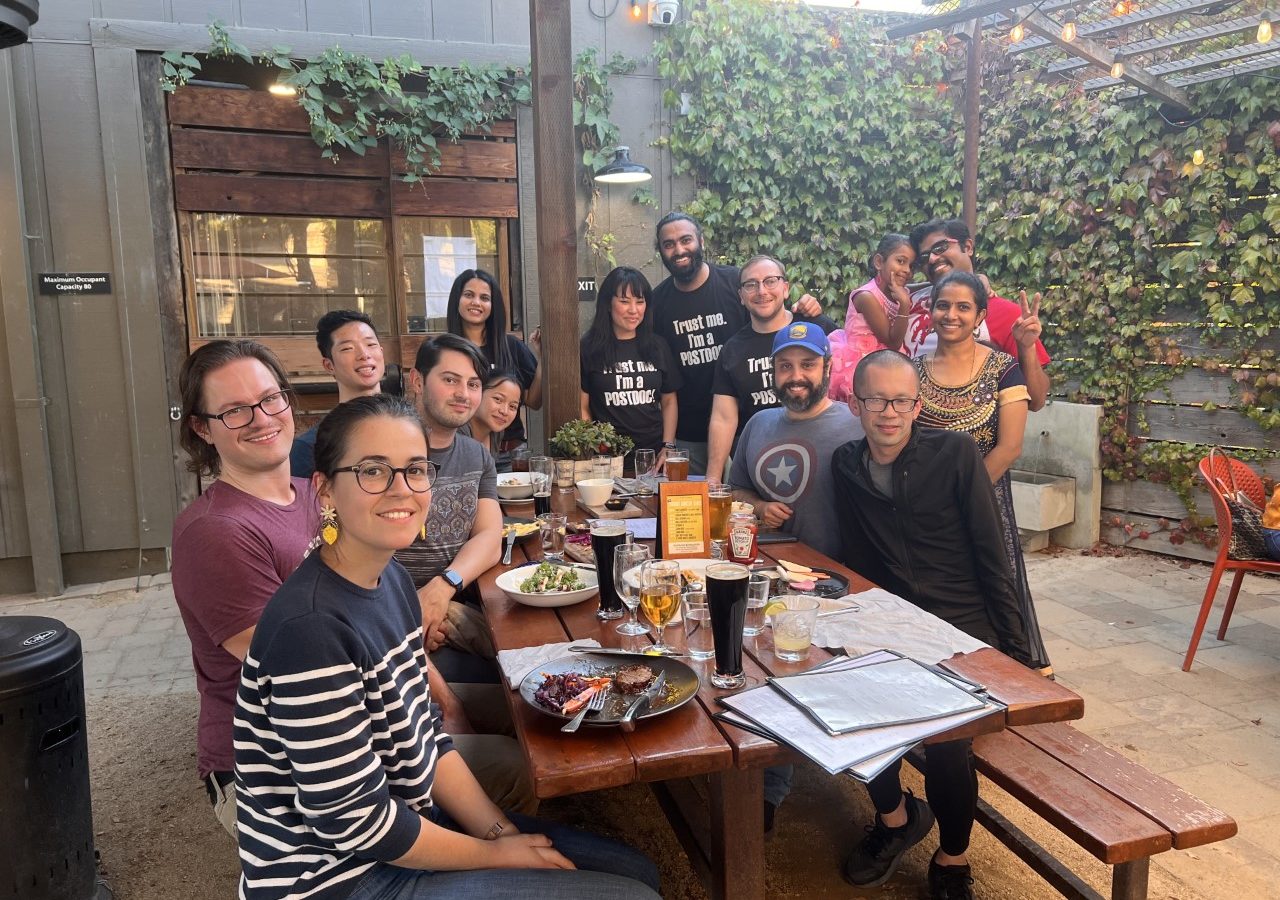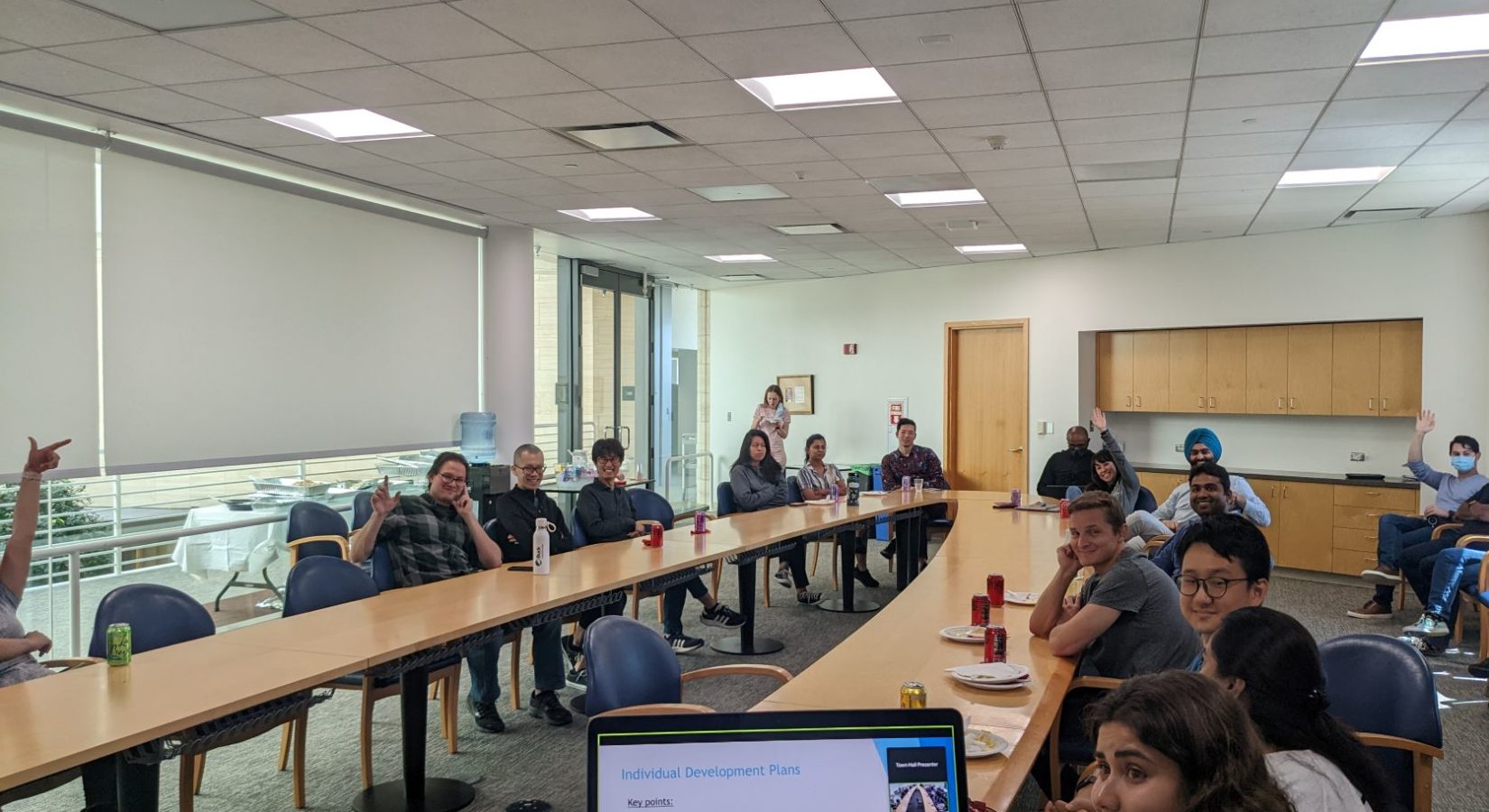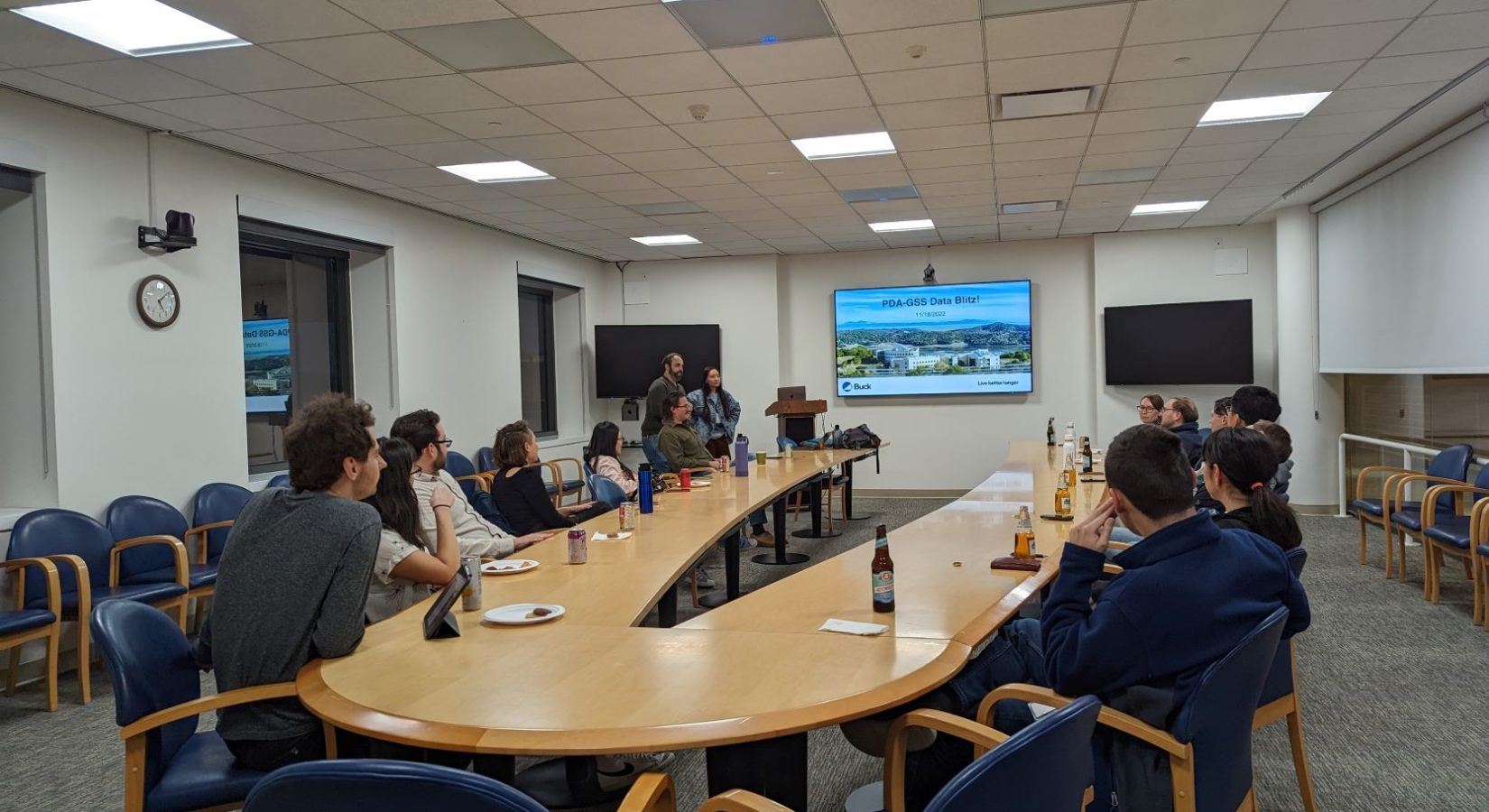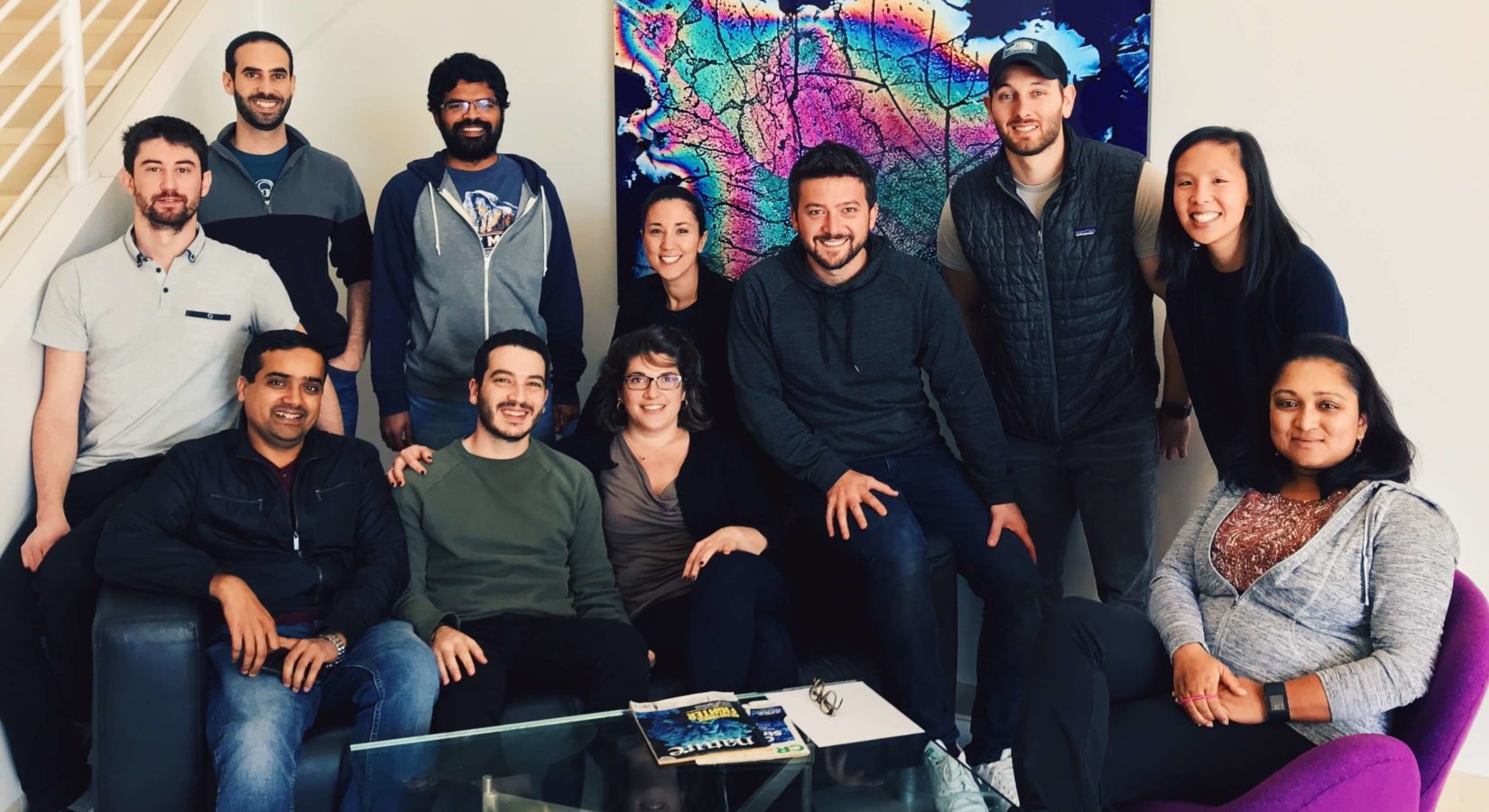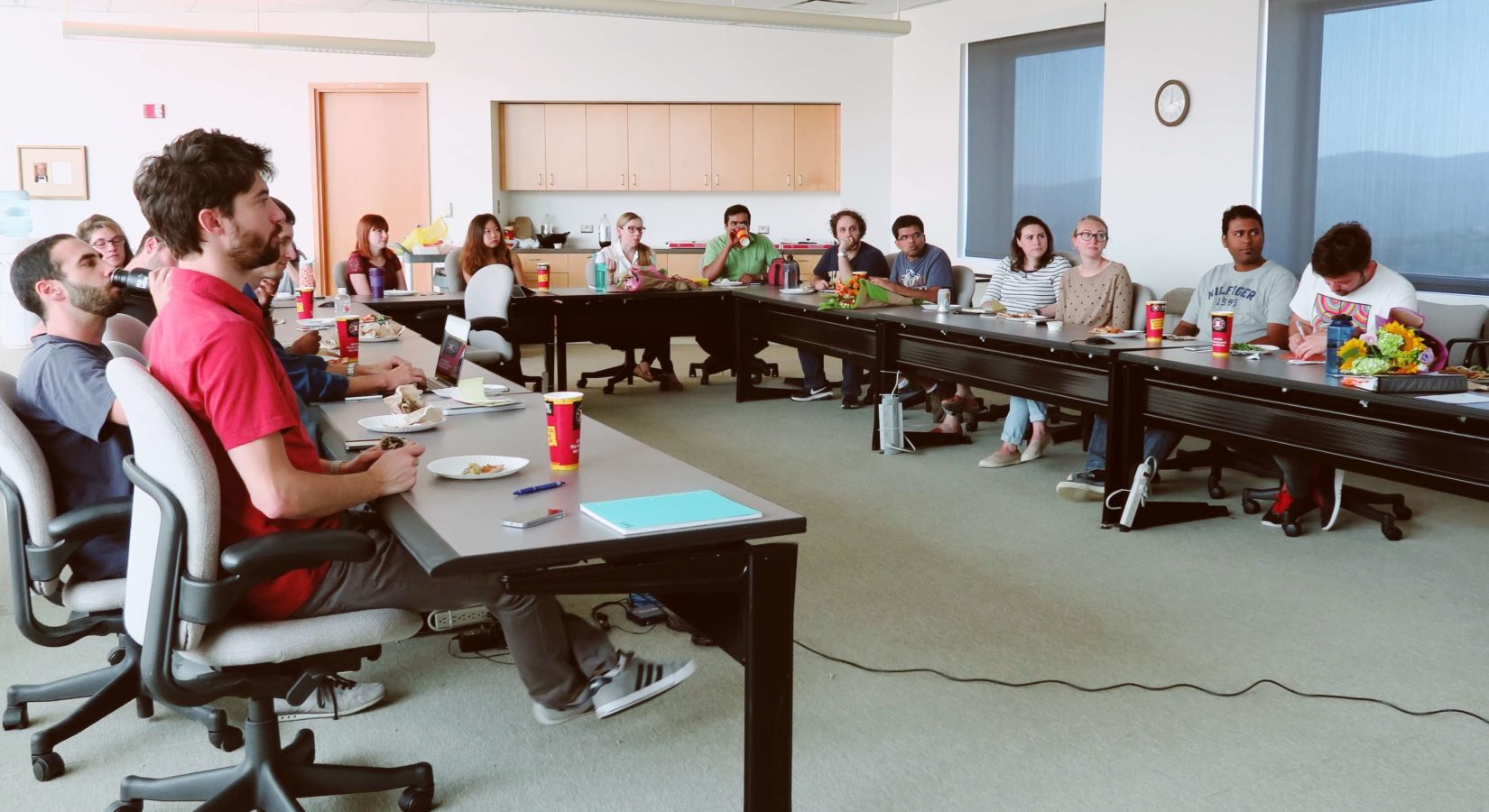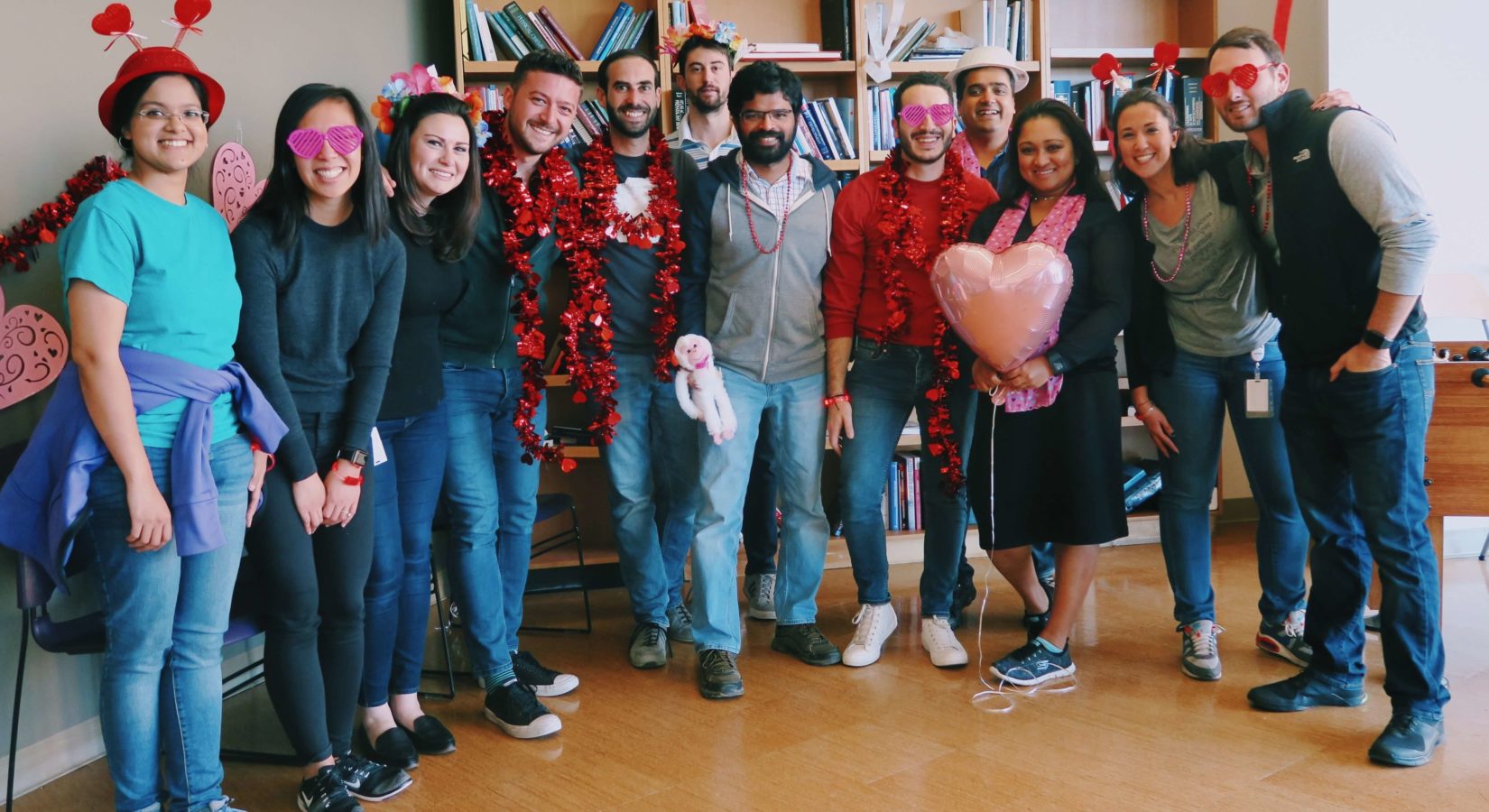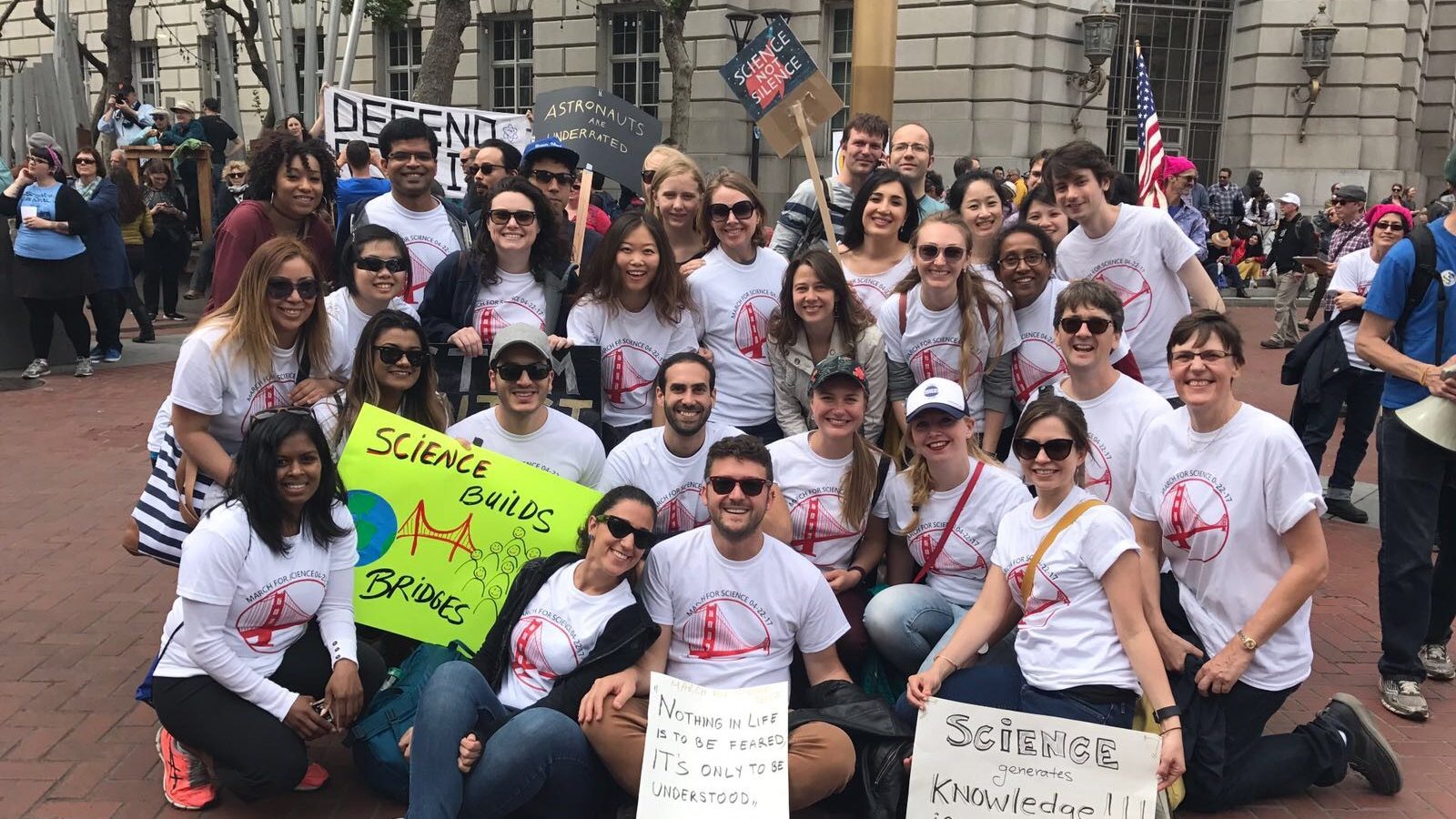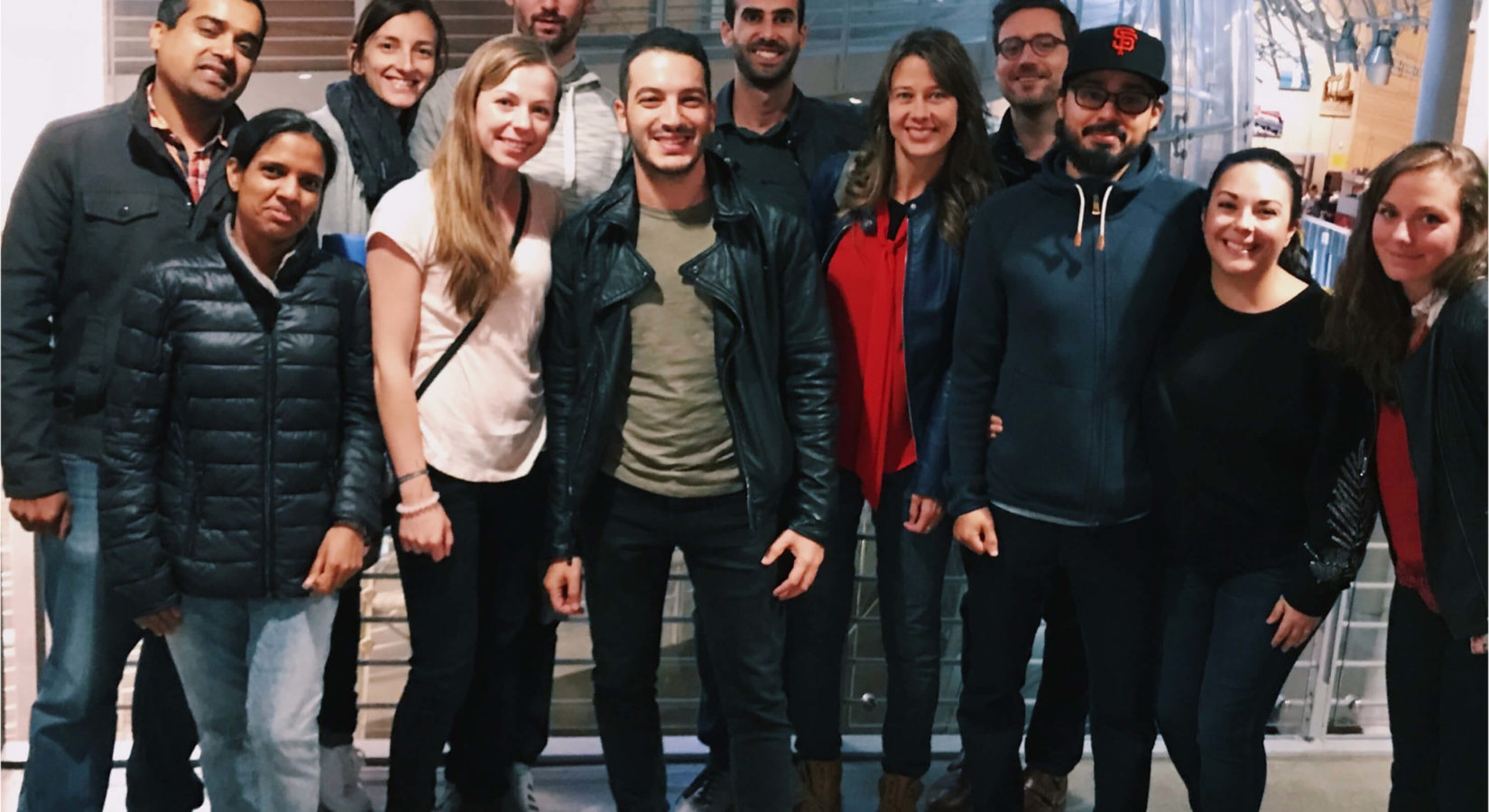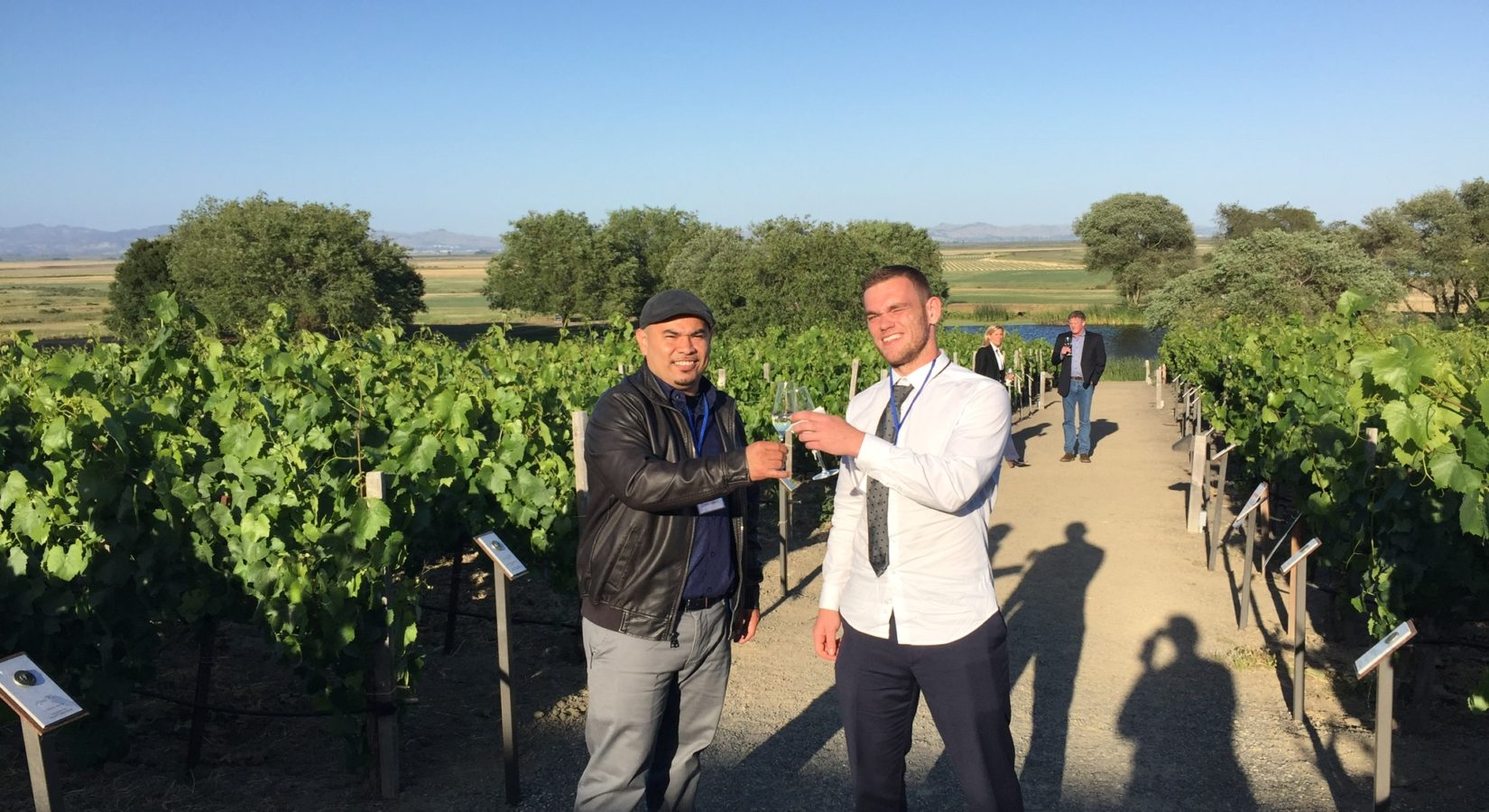
Program Overview
At the Buck Institute, you will find a place to thrive through daily collaboration with the top scientists in the field. We understand that postdoctoral researchers are at the forefront of the scientific advancement of the aging research field, and our mission is to provide them with a holistic training experience that enables them to realize their full potential. Postdoctoral training at the Buck Institute is rooted in cutting-edge research, access to top-notch technical cores, and the cultivation of professional and leadership skills in core competencies. The postdoctoral training at the Buck Institute aims to facilitate a seamless transition into a rewarding and successful career in the scientific community.
For postdoctoral training opportunities at the Buck Institute, please visit our Careers page. For any questions, please contact our Postdoctoral Office by emailing Alyssa West at awest@buckinstitute.org.
Buck Community
Buck Postdoc Appreciation
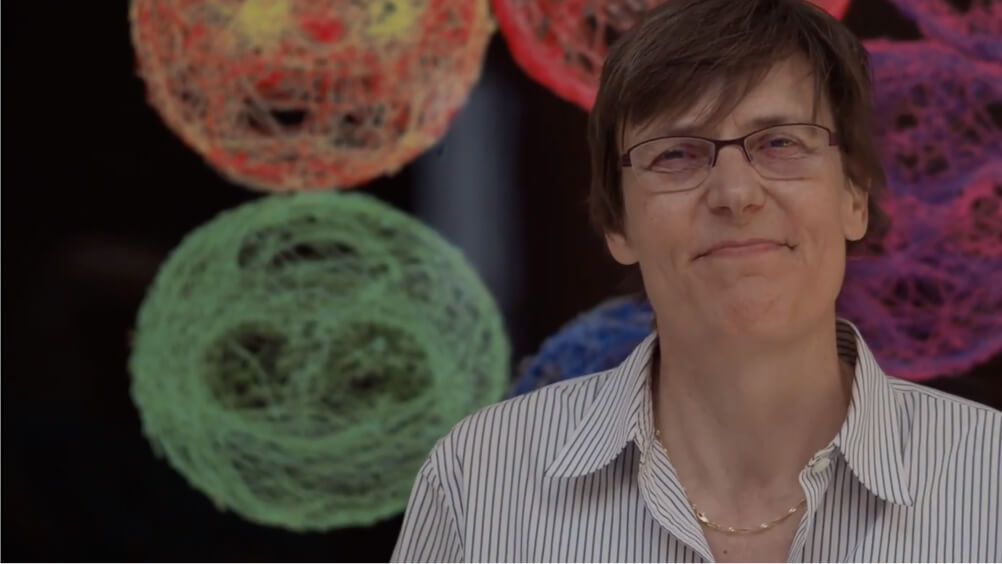
Careers
Come work at Buck!
Living Better Longer Together
Buck Institute for Research on Aging is an equal opportunity employer. Buck Institute seeks candidates whose experience and qualifications will enable them to contribute to our dedication to diversity and excellence.
We are committed to building an organization that represents a variety of backgrounds, perspectives and skills. We welcome the unique contributions that you can bring in terms of education, opinions, culture, ethnicity, race, sex, gender identity and expression, nation of origin, age, languages spoken, veteran’s status, color, religion, disability, sexual orientation and beliefs.
What Our Employees Say About Us?“Inclusive, friendly atmosphere with great coworkers and great science being done in a beautiful location.”
“Feeds my sense of curiosity about aging and of being a small part of something BIG that is making the world better.”
Take a peek inside the Buck or see the Bay Area in the videos below.
